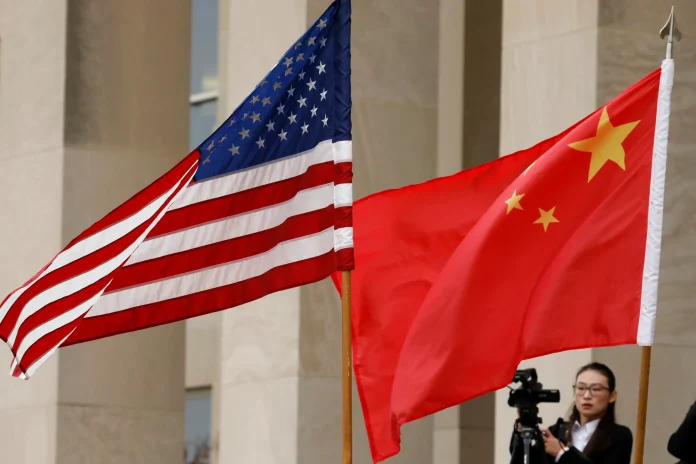When Biden became US President, Secretary of State Anthony Blinken promised that the United States would only hold talks with China if they led to “tangible results.” However, two and a half years later, this approach seems to have changed – Reuters.
Since early summer, the Biden administration has made a largely unresponsive attempt to negotiate with Beijing, setting up working groups and sending three Cabinet officials and its top climate envoy to Beijing.
Relations between the two superpowers deteriorated earlier this year when the US shot down a Chinese spy balloon, but a new strategy designed to partially salvage relations could lead to US President Joe Biden meeting Chinese President Xi Jinping for the first time this year in November.
The goal truly is channels of communication and ensuring we don’t veer into conflict – simple as that. Temperatures are lower than they were.
However, critics argue that such an approach carries certain risks: negotiations and working groups will only divert attention from sanctions, export controls and competition, postponing a resolution of the problem. Ivan Kanapathy, a former White House National Security Council deputy senior director for Asia, stated:
“The return to high-level economic dialogues is a win for China, especially as Beijing continues to stonewall and gaslight on military risk reduction, cyber theft, and human rights.”
China presents a major diplomatic challenge for the United States. The Biden administration wants to confront the country’s growing military without provoking conflict and avoiding a full-scale trade war.
Officials say they will impose tough measures if necessary, while reiterating that the US is open to dialogue to keep relations stable.
The US has imposed sweeping restrictions on semiconductor exports and a ban on US investment in some Chinese technology companies, while offering new incentives for companies to expand in the United States instead.
“The criticism we get from some on [Capitol] Hill and some in the academic community, of course, is that competing means you can’t talk to China. That is a fundamental misunderstanding of diplomacy. The hard, difficult conversations are always with competitors.”
One possible sign of improved relations is China’s recent assistance in the return of Travis King, a US soldier detained in North Korea and transported home through Chinese territory.
A year of US “diplomatic compromises” has not resulted in any action to address market access for US companies in China, the theft of US intellectual property or Beijing’s aggression in the disputed South China Sea, said Republican Congressman Mike Gallagher, who leads the US House of Representatives.
Gallagher chairs the House Select Committee on the Communist Party of China (CCP) and often works closely with Democratic lawmakers.
Meanwhile, the administration has delayed, diluted or otherwise sacrificed defensive actions like tougher export controls or sanctions on CCP officials.
Administration officials admit that China may consider the US desire for engagement as a chance to weaken or slow Washington’s policy toward China, especially on exports of strategic industries such as semiconductors. However, they deny this is happening.
They point to new fentanyl-related sanctions against China this week as evidence that Beijing is not getting approval. Officials also say long-delayed rules, closing export control loopholes for Chinese technology companies like Inspur Group, are about to be released.
Diplomats point out that engagement with China, while necessary, rarely yields quick results.
A senior State Department official stated that Blinken’s June visit to Beijing, the first high-level meeting since the February spy balloon incident, helped to re-open diplomatic channels, although it had no effect on reducing tensions in the South China Sea.
This diplomacy is often very difficult. It’s often tense. Sometimes not particularly pleasant. But I think both sides believe it’s vitally important.
